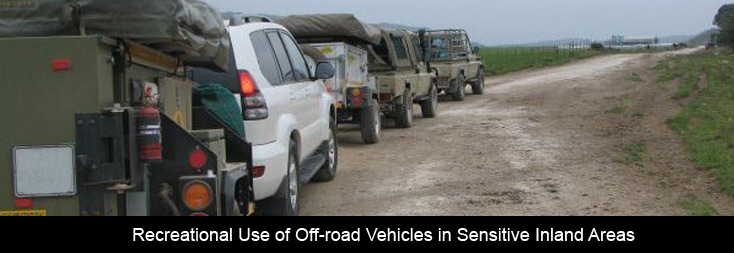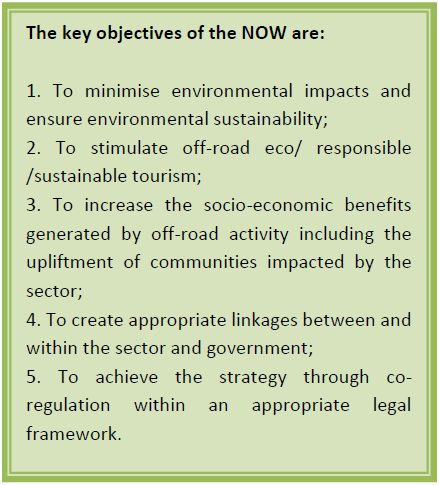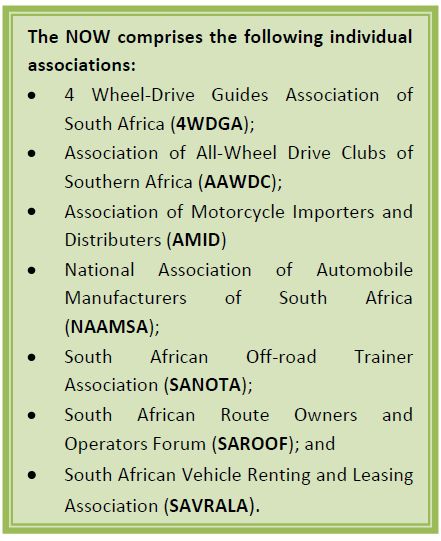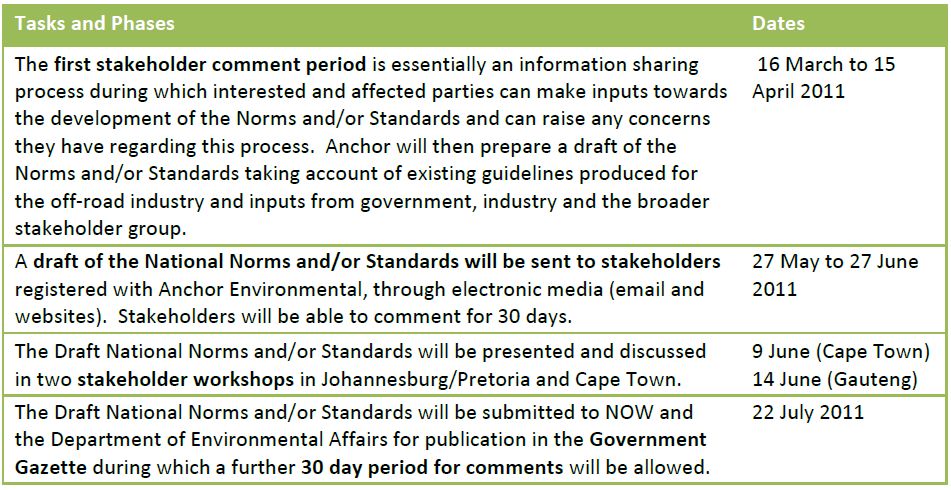4×4 Driving and offroad driver training in South Africa to enter a new era!!

We would like to share information on a new era ahead for 4×4 Driving and 4×4 Driver Training in South Africa. The face, methods and quality of 4×4 driver training has changed significantly since the beginning of 2010. To be able to conduct and present 4×4 driver training against unit standards 254135 and 254154, the training institution must be a registered training provider with TETA and the facilitators and assessors must be qualified to facilitate and assess against the relevant unit standards.
As you might have read in the media and in the correspondence of organisations as “NOW” (National Offroad Work Group) and “AAWDC” (Association of All Wheel Drive Cubs”, the target date for government to identify and publish the so-called “sensitive” areas initiative, where you will need this “DCC” (Driver Competency Certificate) is 2014. Now this may seem far in the future, but most people are going to wait to the last minute to get their “DCC’s).
As you know yourselves, 99% of 4×4 trails in South Africa and our neighbouring countries are in so-called sensitive areas. The reason being that the routes are either in National or Private Game Reserves, in Mountains areas where erosion is a factor, in Desert areas, along Coastlines or in World Heritage declared areas.
Background
In 2005 the Minister of Environmental Affairs and Tourism called for owners and users of inland 4×4 recreational driving tracks to move towards better‐regulated and more equitable practices in respect of their activities in South Africa’s inland environment. Users and owners of these tracks were told unequivocally at the time that regulations similar in nature to those imposed on off-road vehicle activities on beaches would be unilaterally issued by government for sensitive inland areas if a suitable form of regulation could not be found and implemented for the off-road industry.
 The Off-Road Vehicle community responded through the establishment of the National Off‐Road Workgroup (“NOW”), an industry representative Section 21 Company, in October 2005.
The Off-Road Vehicle community responded through the establishment of the National Off‐Road Workgroup (“NOW”), an industry representative Section 21 Company, in October 2005.
NOW appointed consultants to draft a Strategy towards the Co‐regulation of the National Off‐Road Sector in South Africa in 2008. This Strategy was approved by the Minister in May 2009, who then mandated the NOW to develop an implementation framework for the strategy. A key outcome of the strategy was the development, drafting and implementation of National Norms and/or Standards, with a supportive enabling legislative framework, to facilitate environmental compliance, responsible tourism and long‐term sustainability of the off‐road industry.
Copies of the Strategy for co‐regulation for the National Off‐Road Sector in South Africa can be downloaded from the web at the following address: www.anchorenvironmental.co.za (Documents download page) or are available on request from Anchor Environmental Consultants (contact details below).
 Anchor Environmental Consultants (Anchor), an independent consulting firm based in Cape Town, was appointed by NOW in conjunction with Department of Environmental Affairs (DEA) to develop the required norms and/or standards as envisioned in the Strategy for Co‐regulation for the National Off‐Road Sector in South Africa.
Anchor Environmental Consultants (Anchor), an independent consulting firm based in Cape Town, was appointed by NOW in conjunction with Department of Environmental Affairs (DEA) to develop the required norms and/or standards as envisioned in the Strategy for Co‐regulation for the National Off‐Road Sector in South Africa.
What are norms and/or standards?
Norms and/or standards are essentially an alternative regulatory method for controlling environmental impacts and can be used instead of or in conjunction with EIA processes with which developers are probably more familiar. Unlike guidelines, norms and/or standards comprise of rules with which compliance is mandatory, and for which users and owners of off-road tracks are required to assume responsibility for adherence and for providing proof of such adherence.
The norms and/or standards for the national off-road sector will be drafted in terms of the National Environmental Management Biodiversity Act 10 of 2004 (NEMBA) which allows the Minister, by notice in the Gazette, to issue norms and standards to achieve any objectives of NEMBA, including the restriction of activities which impact on South Africa’s biological diversity and its components.
What will the norms and/or standards be applicable to?
The Norms and Standards will be applicable to the recreational use of all off-road vehicles (2x4s, 4x4s, quad bikes and off-road motorcycles) in inland “sensitive areas” defined in terms of the National Environmental Management Act 107 of 1998 (NEMA). These sensitive areas are currently in the process of being mapped by a specialist team for the Department of Environmental Affairs and are due to be published in 2011.
Process to be followed for the development of the Norms & Standards
The work plan put forward by Anchor involves a two phased process. The first phase is the development of draft Norms and Standards which will be submitted to DEA for publication in the Government Gazette. This phase commenced in March 2011 and will continue up until 22 July 2011. The second phase is the finalisation of the Norms and Standards which will follow once the Draft Norms and Standards have been published in the Gazette.
During Phase One, the development phase, Anchor will be consulting with the off-road industry and government, through a Steering Committee, and with a broader stakeholder group via email and two workshops. There will be two comment periods for stakeholders during the development phase. The details and dates for the comment periods are provided in the table below.
Contents of norms and/or standards
The Norms and Standards will contain, as a minimum, the following:
Trails and Tracks
- EIA‐type specifications to be followed for the establishment of all trails and tracks
- Environmental management plans (EMPs) for all trail and track operations (EMP template included in Annexure 1)
- Environmental auditing of trail and tracks (Auditing template included in Annexure 2)
- Accreditation and training of off‐road environmental assessors
- Access control requirements for driver and rider competency
- Trail and track safety and rescue services
Trail User Specifications
- Driver competency requirement to access sensitive areas
- Unacceptable driver and rider behaviour for all areas
- Guiding competency requirement to access sensitive areas
- Unacceptable off‐road guide behaviour for all areas.
Administrative Matters
- Specification of the regulatory function of the industry association and its structures
Compliance and Enforcement
- Offences and penalties
- Law Enforcement
- Co-operation with authorised officers
- Presumptions
Miscellaneous Matters
- Transitional provisions
How can you contribute or be informed?
To register as a stakeholder in this process or to comment on the matter please send an email with your name, organisation/ association and contact details to Anchor at info@anchorenvironmental.co.za or alternatively contact Anchor on 021 701 3420.
Info from:
Environmetal Affairs Information Document
Also view:
4×4 Vehicles





